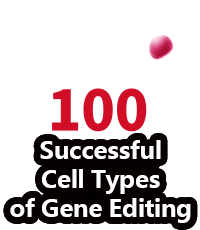If genetic editing wasn’t crazy enough for your reality, a recent breakthrough in CRISPR technology has paved the way for editing entire gene networks in a single step. While this discovery will likely shorten the timeframes required for finding cures for deadly illnesses, it ca…
2019-08-26Researchers are hopeful that new strategies could emerge for slowing the growth and recurrence of the most common primary brain cancer in adults, glioblastoma, based on the results of a study published today in Cancer Research. Research led by Toronto's St. Michael's Hospital and …
2019-08-23Researchers at Boston Children's Hospital report creating the first human tissue model of an inherited heart arrhythmia, replicating two patients' abnormal heart rhythms in a dish, and then suppressing the arrhythmia with gene therapy in a mouse model. Their work, published in two…
2019-08-23Researchers from Tufts University and the Chinese Academy of Sciences have developed a novel method to effectively deliver the CRISPR/Cas9 (clustered regularly interspaced short palindromic repeat (CRISPR) associated protein 9) gene editing tools into the liver for genetic studies…
2019-08-22The approach adopted by the team of the University of Trento, led by Anna Cereseto, opens new perspectives in the treatment of cystic fibrosis, a genetic disease for which no cure is currently available. The research work was carried out in collaboration with KU Leuven, in Belgium…
2019-08-22Building on a track record of developing adeno-associated viral (AAV) vectors as a groundbreaking clinical tool for gene therapy and gene editing, researchers report a more sensitive method for capturing the footprint of AAV vectors -- a broad range of sites where the vectors tran…
2019-08-21Researchers have refined the famous CRISPR-Cas method. Now, for the very first time, it is possible to modify dozens, if not hundreds, of genes in a cell simultaneously.
2019-08-21In the human body the salt content of cells and their surrounding is regulated by sophisticated transport systems. Special channels in the cell membrane selectively permit salt ions to flow in and out of cells. A research team led by Professor Thomas Jentsch at the FMP and MDC has…
2019-08-20University of California San Diego School of Medicine researchers have been awarded nearly $9 million to fund two multi-institutional research projects that use human pluripotent stem cells, CRISPR and human organoids to dissect beta cell defects and create a human cell model of t…
2019-08-20